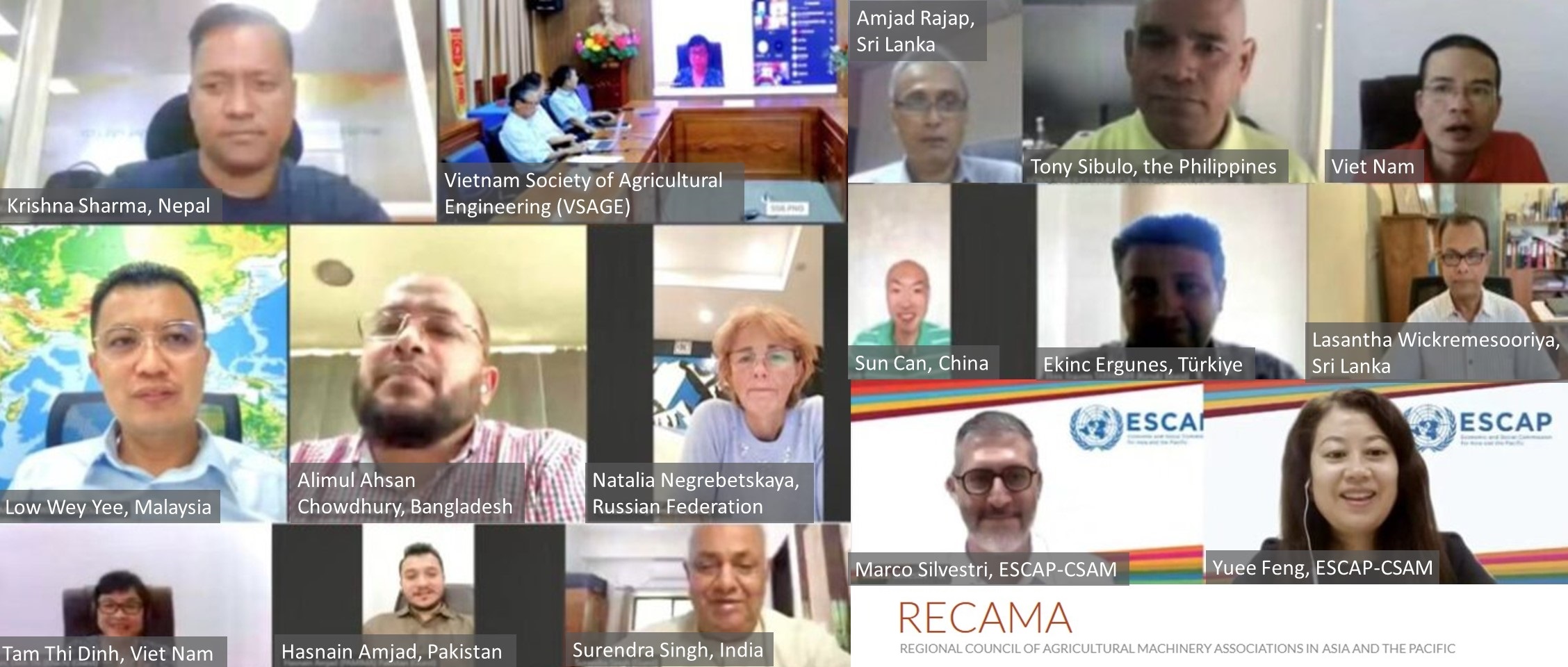ReCAMA Mid-Year Discussion Session: A Prelude of the ReCAMA Activities in 2023

On 17 August 2023, 16 representatives from 12 Member Associations of the Regional Council of Agricultural Machinery Associations (ReCAMA), joined online for the Mid-Year Discussion Session, organized by the Centre for Sustainable Agricultural Mechanization of the United Nations Economic and Social Commission for Asia and the Pacific (ESCAP-CSAM). This virtual gathering served as a prelude to both the 9th ReCAMA Member Meeting and the 8th Training and Study Tour of ReCAMA planned for later this year.
Representing the 2023 ReCAMA Chair Association, and the host co-organizer of the 9th ReCAMA Member Meeting, Mr. Ekinc Ergunes from the Turkish Association of Agricultural Machinery Manufacturers provided an overview of the initial meeting arrangements to the association members, followed by a presentation by Mr. Lasantha Wickremesooriya, who outlined the critical issues facing the agricultural mechanization industry and its outlook in Sri Lanka on behalf the Sri Lanka Agriculture Machinery Manufacturers and Suppliers Association.
During the Discussion Session, a consensus was reached on the theme of the 8th Training and Study Tour of ReCAMA, which is set to take place in China at the end of October 2023. The focus of the training will be on mechanization for smallholder farmers, with a focus on specific crops. Additionally, the methods for sharing country-specific information among members were discussed, to ensure information and data could be shared in a viable and sustainable way among association representatives.
ESCAP-CSAM expressed gratitude for the dedicated support of the Associations and continued engagement of CSAM’s activities over the past years, and envisioned the bigger role of ReCAMA can play in promoting sustainable agricultural mechanization and regional trade and investment in the Asia-Pacific region after the pandemic.
The Regional Council of Agricultural Machinery Associations (ReCAMA) is a flagship project of ESCAP-CSAM with aims to promote sustainable agricultural mechanization in Asia and the Pacific through strengthening the capacity of national agricultural machinery associations, facilitating the exchange of knowledge and information, and enhancing collaboration and closer business connections among national associations and their members.
